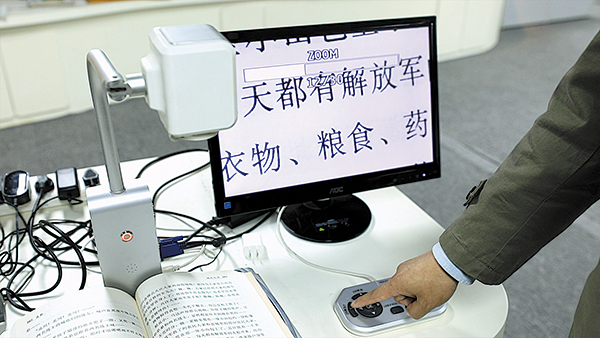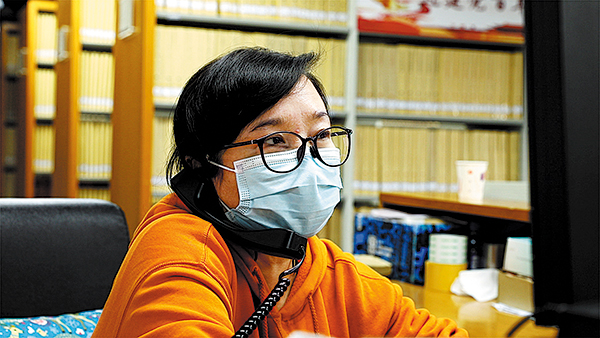

Smart glasses
As the market for wearable devices grows, the library and its research teams have also been trying to tap into the trend. One wearable device they have developed, with outside help, is a smart-route detector. When attached to a pair of sunglasses, often worn by the visually impaired, it can take photos of the path ahead, recognize objects and inform the user via audio.
For example, if a wearer takes a bank note, by looking at it, the device can recognize its denomination, and even if the note is genuine.
The device is also capable of recognizing and reading text.

Like all public libraries, as well as lending books, the BLC holds cultural activities. Every Tuesday, it shows a film, during which a narrator stands to the right of the audience and describes the images on screen in between dialogues. The BLC is now purchasing the copyright of the films, incorporating its own narration soundtrack and adding footage of a dactylology narrator, so as to make a barrier-free version of the films for all audiences.
"The most effective way of improving the lives of the visually impaired is to help them gain knowledge," says Zhu Bing, head of the BLC. "That's where we can help, and with smarter tools, we hope to be of even greater assistance."
The BLC provides a unique service for fully sighted people, too. Inside its building there is a windowless room, about 20 square meters in size, which becomes totally dark when the doors are closed. Anyone can enter and explore the pitch black room by touching the specially designed walls.
It takes only eight minutes to experience, but provides visitors with a lifetime of gratitude for the eyesight with which they are blessed.